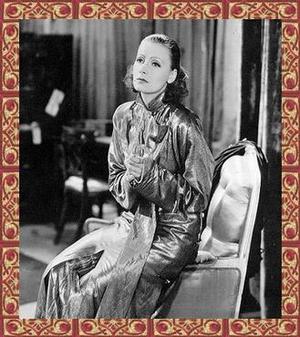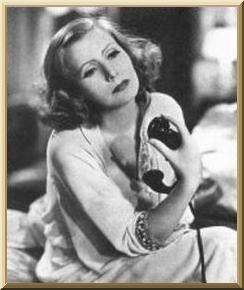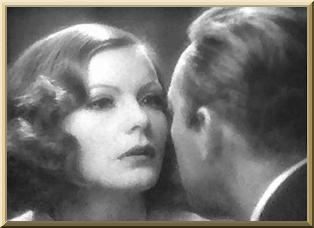

"I want to be alone" Lionel's performance may be his best as this was before the scenery chewing of later years. For scenery chewing, Wallace Beery is on hand. He's so thoroughly disagreeable and dense that it somehow works. Grand Hotel remains a classic of its kind. MGM shrewdly marketed this film by withholding its general release for many months after its Hollywood premiere, allowing a tremendous word-of-mouth campaign to heighten expectation from viewers and critics alike. 
Gleaming deco dinosaur, Thalberg's pet, and the most legendary all-star movie ever made; a tribute to all that "stars" and glamour used to be in Hollywood's vanished Golden Age. This omnibus blockbuster chronicles the interwining lives of the denizens of Grand Hotel: Garbo, the lonely ballerina; John Barrymore, the noble thief; Joan Crawford, the ambitious stenographer; Lionel Barrymore, the dying man on a last fling, and Beery, the ruthless industrialist.
Lewis Stone and Hersholt exist to supervise and comment upon the others. If Dinner At Eight, made a year later, has held up far better as a picture because it comments upon the rich and famous, Grand Hotel set the standard of those who don't achieve the twin pinnacles. Don't expect a particularly lucid screenplay or even acting of a high order; this masterpiece is hopelessly dated, directed by Goulding in the grand manner, and supported by Gibbons's, Daniels's, and Adrian's opulent work.
Revival house audiences laugh today at Garbo, with her permanently furrowed brow and her weird little bobby pin that holds back her hair. But striding through the hotel's lobby, swathed in chinchilla, remote in her fabled Swedish melancholy, "acting" hope swirling above a heavy heart, she really is the most extraordinary monstre sacre the screen will ever know. Secondly, there's a surprisingly warm vixen by the name of Joan Crawford, who steals Grand Hotel.
Even though her face looks like a deco statue's (perhaps the most beautiful eyes and nose ever photographed) she's brimming like a livewire of ambitious current. The chorus girl who became a great star. Here she wants top-rung stardom badly, and it shows. With her little black dresses and casual hair, she looks almost modern. Curious that she holds up better than anyone else and only bears a passing resemblance to the bitch goddess people insist on remembering her as.
She's marvelously in awe of John Barrymore, and very good indeed reaching out to Lionel. It's a part that exploits Crawford's most likable quality, her loyalty. John Barrymore is all continental matinee-idol charm. If it seems hammy and somewhat affected today (though Barrymore is never effete) just guffaw through the current Broadway revival to be reminded of the sadness of this vanishing breed.

And the critics cheered, along with the Academy of Motion Picture Arts and Sciences, which voted the film an Oscar for Best Picture. The enormous success of Grand Hotel set the stage for many all-star films to come. In 1945, Grand Hotel was remade as the lightweight Weekend At The Waldorf with Ginger Rogers, Lana Turner, Walter Pidgeon, Van Johnson, and Edward Arnold in the lead roles.

- Greta Garbo - Grusinskaya
- John Barrymore - Baron Felix von Geigern
- Joan Crawford - Flaemmchen
- Wallace Beery - General Director Preysing
- Lionel Barrymore - Otto Klingelein



- Edmund Goulding - Director
- Irving G. Thalberg - Producer
- William A. Drake - Screenwriter
- William H. Daniels - Cinematographer
- Blanche Sewell - Editor
- Cedric Gibbons - Art Director
- Adrian- Costumes/Costume Designer


- Best Picture (win) - 1931/32 - Academy
- 10 Best Films (win) - 1932 - Film Daily
- 10 Best Films (win) - 1932 - New-York Times
- Best Picture (win) - 1932 - Venice Film Festival
- Films Presented - Edmund Goulding - Venice Film Festival









